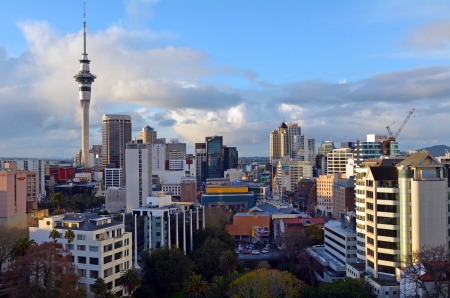The other week, we profiled the compliance hell constricting New Zealand business. And received letters in agreement. It seems someone else is listening, too…
Investors need the wheels of commerce to turn smoothly. No sticking brakes. And if we don’t find opportunities here for growth and income, we must look further afield. Which is one thing we do in our global newsletter, Lifetime Wealth Investor.
Last week, Simon Bridges announced a raft of changes aiming to get New Zealand moving. And with super-low interest rates, maybe he’s ready to hit his sweet spot next year?
We had a look at what he’s proposed. And crunched the numbers.
Retirement age and interest
National plans to gradually increase the retirement age from 65 to 67. And the required residency to qualify for superannuation from 10 to 20 years.
Fine. When it comes to aging costs, we’re facing a demographic time bomb. But the missed dagger is KiwiSaver. That’s a lock-up. You can’t get your money out until the age of eligibility for NZ Super. So, beware, this could mean 2 more years to wait. To get access to your money.
I tend to focus on gaining the benefits of KiwiSaver — government and employer contributions. Then for anything beyond, I will focus my investing elsewhere, where I’m in control and can enjoy or reinvest dividend income as I please.
But the Nats have a red herring too. They’re considering allowing savers to deduct inflation from their interest income.
Seriously?
The OCR is at 1%. What inflation are you expecting?
This is like the milkshake that comes with a free cup.
What about deducting inflation from other forms of yield? Dividends? Rent?
Why should only lame-duck savers get a CPI-adjusted return?
I’m confused on this one.
Company tax and deregulation
Nice. He’s floating a cut to the 28% company tax rate, acknowledging that it’s one of the highest in the OECD — as we pointed out the other week.
A meaningful change there would be like a caffeine shot after a hangover. Something to get you going in the morning. And make the business day promising.
The deregulatory commitments could also unshackle many. And allow them to work in and on their business, rather than for regulators.
National is looking to repeal 100 regulations in its first six months and require the removal of two regulations for every new one introduced.
Thumbs-up, Simon. This country is starting to look and act like the former Soviet Union.
Environmentalists may not be happy with one part of his deregs — and that’s repealing the ban on new offshore oil and gas exploration.
But I squared off my conscience when I undertook detailed analysis into electric vehicles. Factoring in all elements of their production, they’re not much less pollutive than efficient petrol engines.
Over the course of the life of an EV, it could still be responsible for 80% of the emissions of a petrol car.
Carbon neutrality by putting in place countermeasures like mass tree planting is probably more constructive. It’s prettier — and lasts the distance.
Foreign buyer ban
Here’s what National said: ‘Repeal the government’s foreign investment changes.’ I think this euphemistically covers the foreign-buyer ban, which seems to be slowly restoring housing affordability.
I asked Bridges on radio some time back whether he would remove the foreign buyer ban. And he said yes, he would — because it discourages investment.
Trouble is, this country has proven, time and time again, it can’t build enough houses or release enough land for its residents.
Australia — much larger land mass, cheaper build costs — does not outright ban foreign buyers. It only allows them to purchase new properties, not established ones.
If you’re wanting to encourage investment, rather than a mop-up of the housing stock with foreign money, this seems a better approach.
Canada charges a 15% non-resident tax on home purchases in many areas. The UK slaps on another 3% stamp duty.
Auckland
Local commentators — often aligned to the real estate industry — have consistently been in denial on the impact of foreign buyers. Official stats show about 1 in 5 properties in central Auckland was purchased by a non-NZ national at the start of 2018.
And this is something I don’t think National ever effectively grasped. Nor the impact on local buyers, who are forced to compete with the global flow of money out of the developing world.
This is part of the reason National is not in government today.
Combined, the proposed policy announcements seem to offer a higher-octane fuel. Which is clearly needed in a growth-constrained environment. And particularly for a small, vulnerable trading economy like New Zealand.
But I’m not sure they’ve got the mix right just yet. Floating Kiwi homes on the global money train could blow up the Auckland market, as it did before.
And the inflation-adjusted interest-rate idea seems about as impotent as a castrated chook in the current environment.
Should they get to power, I can see a potential boost for banking and property stocks, along with perhaps Z Energy [NZX:ZEL] with the repeal of the regional fuel tax. Another sweetener in the mix.
Nice work, Simon. But no cigar yet.
Regards,
Simon Angelo
Editor, WealthMorning.com
Important disclosures
Simon Angelo owns shares in Z Energy Ltd [NZX:ZEL]
